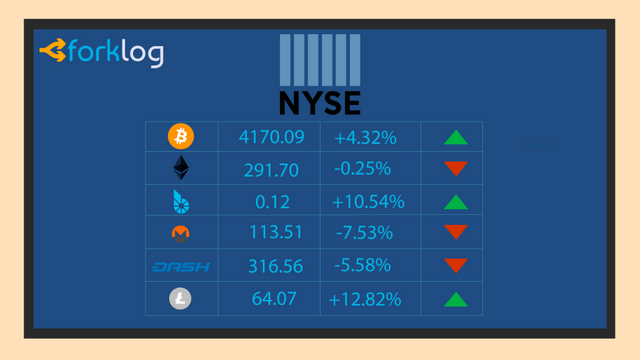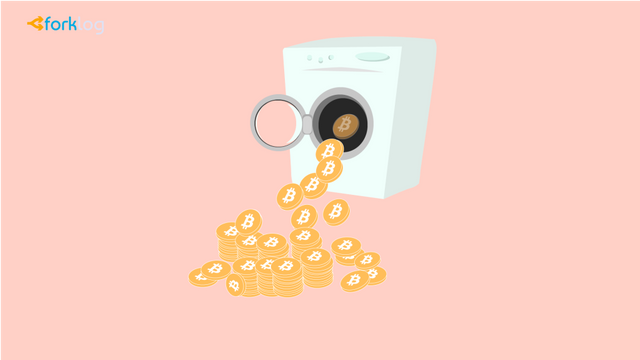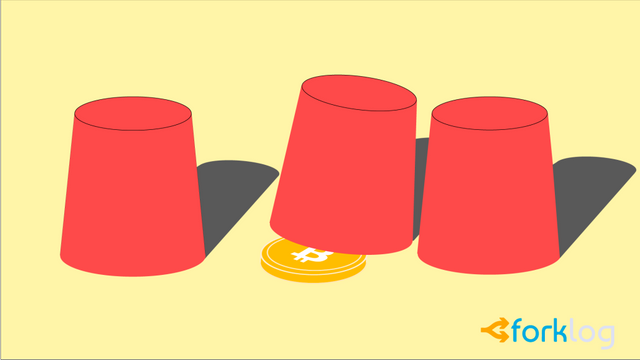The first experience of the ICO ban in China: causes, legal features, risks and consequences
 Most recently, an important event took place in the ICO market - the Chinese authorities banned krauseylov in their jurisdiction, and all companies that had already conducted the ICO, were urged to return the funds to depositors. His opinion about how this ban can affect the future of the crypto-currency ecosystem, in the exclusive material for ForkLog, said Dr.Sci., Lawyer Ruslan Chernolutsky.
Most recently, an important event took place in the ICO market - the Chinese authorities banned krauseylov in their jurisdiction, and all companies that had already conducted the ICO, were urged to return the funds to depositors. His opinion about how this ban can affect the future of the crypto-currency ecosystem, in the exclusive material for ForkLog, said Dr.Sci., Lawyer Ruslan Chernolutsky.
The main reason for the global success of bitcoin and other crypto-currencies is the entry of large financial and investment players into a new market. As you know, big money for different "pyramids", "nonsense and fairy tales" will not provide money. Investment funds, international corporations, financial monopolies and even some states are already beginning to declare their support and the beginning of the use of a number of crypto-assets and blocking technology as a whole-all this inspires confidence in investors and holders of crypto-currencies.
The market seriously regards bitcoin as a financial digital asset, rather complicated, but real, and most importantly - having monetary value and its uniqueness, both in creation and investment, and in use.
However, large international regulators are afraid and distrust of such a process of raising funds for new investment projects, like ICO (Initial Coin Offering, the primary deployment of cryptonet-tokens). Still, there are suspicions that all this is the old school of Ponzi (the financial pyramid). We must understand that the main goal of the financial pyramid is to enrich its creators at the expense of the personal investments of new participants. The assets of such pyramids are not needed by anyone on the external market, they do not have any advantages in use, they do not solve any problems.
In the case of crypto-currencies and some types of tokens, the situation is different: they solve a big problem of the financial market, their turnover is convenient and profitable for its numerous participants, which creates a real demand for their purchase.
But the nature and the process of conducting the ICO pushes the various suspicions of regulators. State financial managers do not want to put up with the fact that they are not actually engaged in the issue of tokens and can not totally regulate through the tools of licenses and permits a new market. It is enough to see how complex and regulated the securities market is in the US, where the SEC (Security and Exchange Commission) is the king and god of this market. Therefore, 2017 was the year of loud statements by the SEC, MAS (Monetary Authority of Singapore), which warned their citizens about the risks of ICO and severely limited the possibility of attracting their funds at the crowdsdale.
Significant in this issue was on September 4, 2017, when the People's Bank of China declared illegal operations related to the ICO. The financial regulator ordered not only to stop all ICO campaigns, but also to return the funds collected earlier, as well as to prohibit the operations of exchanging crypto currency for fiat money. China expressed concern that many ICOs are financial fraud or a pyramid scheme.The main logic of claims for regulators is the following: ICO is vulnerable to the risks of money laundering and terrorist financing because of the anonymous nature of transactions and the ease with which large amounts of money can be transferred from one source to another in a short period of time.
I note that the attitude of official China to all branches of the finteh industry is rather cautious. China has one of the fastest growing markets in the world. In addition, it is here that most of the mining farms are located. At the same time, the legislative approach to the legal regulation of crypto-currency relations in China has not yet been worked out. At the same time, the crypto currency is considered by the regulator as a virtual commodity, and crypto-exchange exchanges must be registered with the Telecommunications Bureau, which is progress.
Taxation in China is carried out in accordance with the standard rules for goods: operations with crypto currency are subject to income tax, income tax and capital gains tax, and its sale can be taxed with value added tax.
Back in 2013, the Central Bank of China said that in the near future it would not be possible to recognize bitcoin as a legitimate financial instrument. At the same time, the Central Bank noted that there is no ban on the implementation of crypto-currency transactions, since these are commodity relations.
In 2014, the People's Bank recommended that Chinese banks and payment systems close the accounts of Chinese web resources that trade bitcoin, and in the same year said that they did not consider the possibility of prohibiting bitcoin. In this bitcoin, he defined as a kind of asset, not currency.
In addition, in 2015 it became known that such virtual property could soon be recognized as the "basic human right" in China, as the relevant definitions are contained in a new draft of the main provisions of the Civil Code of the country. It was a kind of curtsey towards liberalism. A common misconception is that bitcoin and other digital currencies are completely banned in China, but the country has become the world's largest market for the production and trading of crypto-currencies.The prohibition on bitcoin for the time being concerns strictly banking institutions. Banking institutions and their employees are prohibited from participating in bitcoin business through the banking system, as well as serving the representatives of the bitcoin industry and cooperating with them.
Meanwhile, trading in crypto-currencies and mining is not prohibited in China for ordinary citizens. Therefore, small and medium business was actively engaged in mining and trade. Cheap electricity and mining machines are the most important reasons for the prosperity of the activity in the production of crypto-currency in China. However, the decision to ban ICO is a blow to the economic efficiency of mining in China, as the Central Bank forces companies that have already conducted crowdsdale to return money to investors.
This happened, on the one hand, against a record high rate of capital raising in the form of tokens in the world and in China itself, where on August 1, 2017, more than 40 platforms were launched, where about 60 fundraising campaigns in the crypto currency (ICO ). The total fees of these campaigns amounted to more than $ 400 million dollars. According to Bloomberg analysts, this represents about 26% of the world market of ICO.
Therefore, the logic of the tough reaction of the Chinese authorities is reasoned enough: taking control of the ICO, you can get control over significant financial flows. In addition, having so much responsibility to citizens, it is easier for China to ban ICO before its full study and gradual registration in the legal field, first of all, regarding the responsibility of the organizers of the crowdsails to their investors. By and large, the ban is introduced to reduce legal, economic, regulatory, organizational and technical risks.
But it is worth at least a short look at the legal risks, since it is the presence of such today forms in the state regulators preventive-prohibiting recommendations and actions.
Risk number 1. Possible recognition by ICO of the procedure for the sale of securities

This is one of the first risks that are remembered when it comes to ICO. The problem is that the attraction of possible investors with promises of profit has already drawn the attention of securities market regulators - and this carries the risks of possible subsequent prosecution.
Hence the conclusion: ICO-tokens need to move away from associations with securities, with the sale of a stake in the company and generally avoid mentioning the receipt of profit (dividends) for their owners. In this connection, it is worth remembering the so-called Howie rule (worked out by American judicial practice), because American law does not contain a clearly formulated approach to the notion of a security.The English word securities in US legal documents has a much broader interpretation than just a security. At the heart of the American concept of securities lies, first of all, a detailed analysis of the content of a particular legal relationship between the issuer and the holder of securities. In this connection, the American notion of securities can include not only a specific security in its classical sense, for example, an equity, a bond, but also any other legal relationship of two or more persons, which creates for one of them an investment interest in the enterprise of the other. This, in turn, makes the concept of "issuer" and "holder" somewhat arbitrary.
Therefore, at one time in the SEC case against W. J. Howey Co, the US Supreme Court applied a method called the Howie test. He distinguishes four main components, the presence of which in the legal relationship allows us to say that the legal relationship is security:
- investing money or other property;
- general holder and issuer security company;
- expectation of profit from the enterprise;
- the expectation of such profits exclusively from the issuer or a third party, but not from the holder.
Risk number 2. Lack of legislative regulation and legal protection

To begin with, there is currently no legal and regulatory framework in the world that establishes standard rules governing the conduct of the ICO. From this it follows that there are no legal protection mechanisms for both investors and persons who issue tokens.
Now in some countries there are already attempts to include crypto-invests in the legal field and giving the crypto-currencies official status. It is possible to consider these attempts in creating conditions for the regulation of a new financing instrument. For example, in Switzerland in late 2016, the development of rules was announced that would allow raising up to 1 million Swiss francs within the ICO without obligation to report to the securities market regulator, which may attract relevant companies.
Singapore is at the stage of developing its own legislative regulations. However, the myth that Singapore is a "paradise" for the ICO, is no longer confirmed after the statement about ICO risks for investors by MAS. Singapore, like China, for a long time did not pay attention to what was happening until it touched on its citizens and the requirements of the Financial Action Task Force (The Financial Action Task Force, FATF).
An indicative example is Japan, which was the first country to equate digital money with real money, legalize crypto-exchanges by developing rules for their activities and, as a result, created a basis, but not a system standard for procedures like ICO.
The example of these countries showed that the definition of the legal status of crypto-currencies and the processes of initial placement of coins creates guarantees for participants and players of the market itself, and therefore prerequisites arise for the emergence of centers for crypto-investment. Of course, the lack of legal regulation provides freedom, nevertheless attracting serious players will require certain legislative and legal guarantees.
Risk 3. Possible transboundary jurisdiction

Often, White paper (target information about the project and the conditions for investor participation) of many projects contains the condition that citizens of some states can not be their participants. This is due to the tight regulation of investment processes, including the use of crypto-currencies, as well as the extraterritorial principle of justice.
In other words, participation in ICO of citizens of such states as the United States, Singapore, and now China and a number of others automatically attracts the extension of the relevant jurisdiction. In any case, do not forget that work within the relevant jurisdiction, however favorable it may be, entails the application of the liability standards established by this jurisdiction.
Risk 4, related to the legislation on combating money-laundering obtained by criminal means

In order to suppress the possible use of tokens in the legalization of proceeds from crime, regulators pay close attention to the participants of the ICO. It is necessary to be prepared for the fact that the receipt of money, especially from individuals, will require an explanation of their legal origin. Accordingly, any project should take this aspect into account when initially placing coins.
However, the existence of anti-money laundering legislation and the lack of legislative regulation of the ICO are more likely to pave the way for abuse by regulatory authorities, but do not pose a barrier to laundering.
Risk 5. Fraud

To calculate fraud, it is necessary to spend time studying the people involved in the ICO project team, and their past, if there is no information on the person in the network or it is fresh only - you should think about participating in such an ICO. In fact, without compulsory professional legal Due Diligence is indispensable.
Risk 6. Possible legislative pressure, including the recognition of tokens by money surrogates

The lack of legal regulation in the future can be transformed into a legislative ban on the implementation of such activities or the creation of such requirements that will allow only large participants to work (from the requirements for insurance of activities to the establishment of a minimum amount of capital formation). In the event that only large projects will be allowed to work, the ICO will lose any meaning at all. China has already implemented such a strict ban.
Consequences of the ban
First of all, it can be considered erroneous for the opinion of many lawyers that China, by its decision, has set a new trend in the world to ban the ICO and this will be ubiquitous. Such a gigantic economy and a huge consumer market, like in China, is easier to impose a ban and then develop certain rules. The state is responsible to its citizens and is obliged to guarantee them security in many aspects.
However, necessarily in contrast to the Chinese solution, there will be other more liberal or precautionary-weighted decisions by regulators. Already today there are countries that have made significant progress in the legal field through tools for adapting and harmonizing their future benefits through the gradual legalization of both ICO and the circulation of crypto-currencies and their mining. It is worth recalling the experience of Switzerland, Japan, Estonia, Singapore and, to some extent, cautious and balanced positions of the United States and Britain.
It seems that the world community in the issue of regulation of crypto-currency at this stage will be bipolar, and one should closely monitor the decisions of countries with liberal legislation.
As for Russia and Ukraine, it is necessary to follow not the path of China, but to adopt, first of all, the already existing directives in this part of the EU and monitor future European directives.
In addition, many crypto business players will seriously take up the issue of lobbying bills that would maximally find a consensus between the digital future and the state's basic requirements - security of operations for investors and payment of taxes. Legislation and its planning should be a guarantee that only professionals responsible to investors will work in the market.
It is necessary to recognize that the ICO market is in the stage of chaos and "Russian roulette". This decision of China can become a sobering shower for hot heads. One of the positive consequences of this decision can be the necessary process of clearing the market from unscrupulous operators.
In addition, the positive side of this solution is that China makes a clear division between tokens and crypto-currencies. And if tokens are forbidden, then crypto-currencies are a regulated financial instrument, a virtual digital asset and a commodity. Since crypto-currencies without tokens and ICO procedures can not exist, this issue will also be regulated in China itself in the near future.Such a decision and the algorithm of future decisions of other regulators should, most likely, on the scale of the global economy determine that the crypto currency is a new currency or commodity. The legal field of this type of new economic relations depends on what consensus the leading world legislators and financial managers come to.
As soon as the ICO receives an official status, companies will be able to participate in it licensed and officially, pension funds, exchanges and exchange banks will join the process, which now do not want to attract too much attention, and therefore took a wait-and-see attitude.
It's very clear to everyone that the crypto currency and the block-country will not go anywhere, therefore, states should take official steps to regulate this market. For the market, this means a promising multiple growth.
really bad from china
We may never be strong enough to be entirely nonviolent in thought, word and deed. But we must keep nonviolence as our goal and make strong progress towards it.
- Mahatma Gandhi